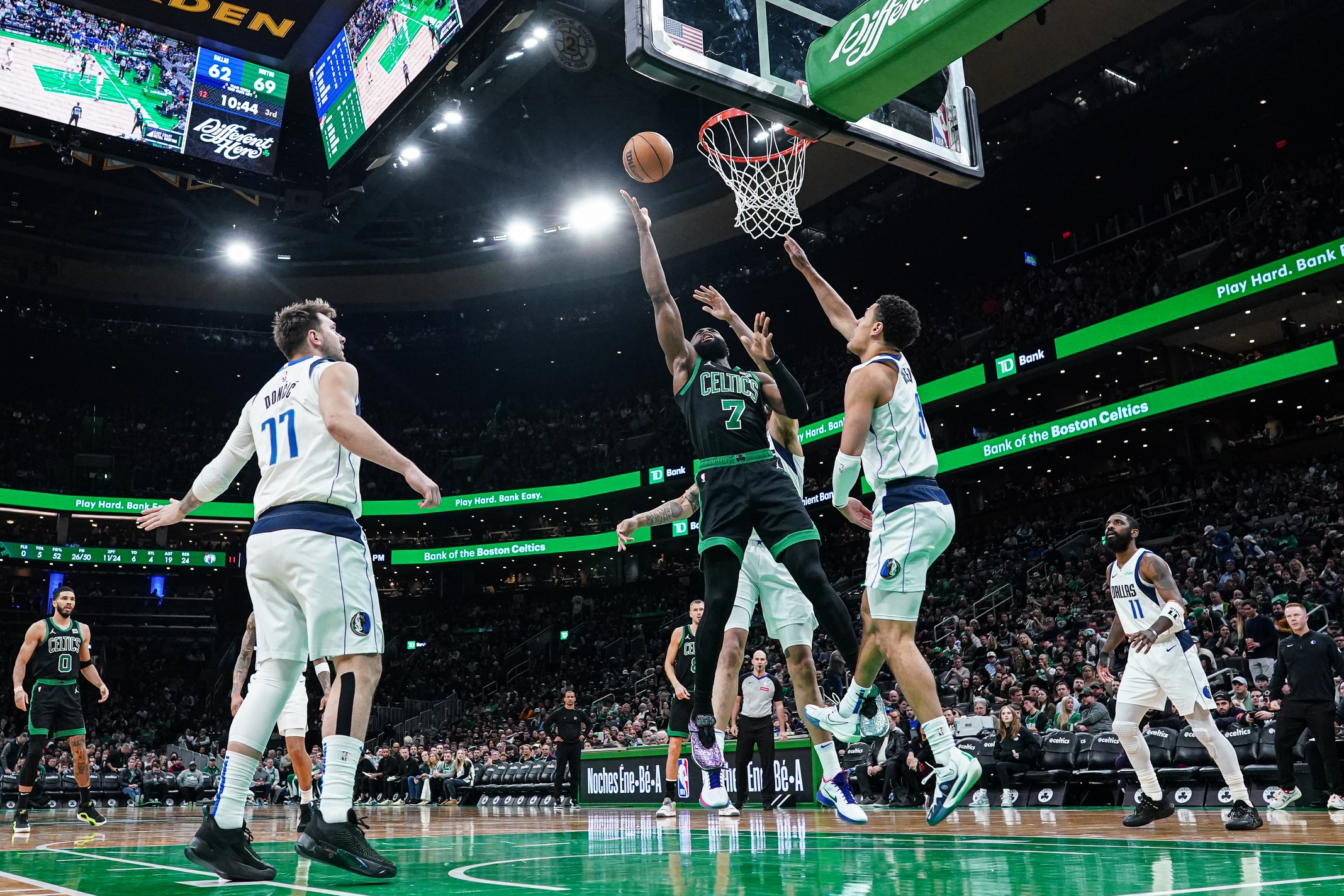Throughout NBA history, there’s been a constellation of stars who have taken their jobs as a professional athlete so seriously that they want to use their platform to educate, not just entertain.
Due to progressive nature of sports, an entity and environment through which societal barriers can be broken, this often takes the form of activism. Indeed, while Hall of Famers like Bill Russell and Kareem Abdul-Jabbar are renowned for their basketball skills, they’re revered for championing social justice. Two decades later, players like Allen Iverson became the poster child for athletes who didn’t feel the need to whitewash themselves or downplay their Blackness to be palatable to the masses.
Today, it’s all but the norm for athletes who are unapologetically Black —those comfortable in their skin, proud of their culture, and protective of their history—to speak out against racial inequalities. LeBron James spearheaded this campaign initially, becoming the spokesperson on civil rights issues for a time. His contemporaries and friends —Chris Paul, Carmelo Anthony, Dwyane Wade —became increasingly vocal about such matters.
Celtics-Mavs Finals Showdown Is Bigger Than Basketball
The reaction to the league speaking out about significant sociocultural issues has been mixed.
Some are discomforted, even discombobulated, by the tough conversations needed to enact change. Indeed, in assessing the league’s declining viewership, the political landscape is a major factor. Even those who aren’t conservative or outright bigoted would rather watch a sport where they don’t have to think too hard about the harsh realities of life, like baseball or soccer. These sports will certainly address racism when they encounter it. However, they aren’t catering their leagues towards Black athletes. They aren’t running social justice campaigns.
The NBA is though.
It’s for this reason that the impending NBA Finals showdown is about more than basketball. When the Boston Celtics and Dallas Mavericks face off, it’s not just a battle between two teams with two All-Stars. It’s a matchup between two men who are among the new faces of NBA activism. That they play in cities and states that are historical prejudiced against non-Whites, it’s even more powerful.
Jaylen Brown
Celtics wing Jaylen Brown may be embracing a heel role because he isn’t getting his just due as a player. Nonetheless, he remains one of the league’s best role models. He’s gregarious and generous, intelligent and cultured. He’s in many ways still an academic. In an age where Black boys and men need a Benjamin Banneker or George Washington Carver to look up to, Brown is much like them.
He’s quick to point out injustices, even leading a peaceful protest against police brutality in Atlanta after George Floyd’s murder. he’s also investing in tangible solutions, like creating the Bridge Program at prestigious MIT. In doing so, he’s helping improve the appeal and accessibility of STEM programs to Black youths. Organizations such as The 7uice Foundation are also intended to address the long reach of systemic racism. The fact that he’s doing all of this while carrying himself in such a mature manner just makes it that much more important.
When Brown steps on the court, he’s not just a basketball player, he’s a symbol of Black power. In his own words, Brown “looks at it as a responsibility,” per Boston 25 News’ Kerry Kavanaugh. “Athletes in general, entertainers, you know, are so influential… The power in that is amazing to be able to use that for positivity and to uplift a community or be a voice for the voiceless.”
Kyrie Irving
Let’s address the elephant in the room. Mavs star Kyrie Irving’s intentions have not always matched the realities of his activism. His once harmless conspiracy theories became increasingly problematic over time. This culminated in Irving advancing an antisemetic theory in his efforts to shine a light of the hidden history of African-Americans.
That being said, what’s been ignored by many who assessed Irving’s character at the time was that he was spurred by a desire to uncover the truths of Black history. For many African descendants, their recorded history starts on the North American landmass. There’s no way to trace their family tree all the way back to their motherland because their ancestors were enslaved. They were humans seen as chattel, with their kidnappers and abusers treating them worse than animals. Irving, a truth-seeker, missed the mark when assuming Black Americans are the original Israelites. However, this only served to highlight an issue that’s discussed but irregularly; the plight of Irving and other’s Black ancestors was so great that their family history wrongly and inconceivably starts with slavery.
With that being addressed, Irving’s communal social media activism pales in comparison to what he’s doing on the ground. He’s trying to help bring clean drinking water to Flint, MI. He pays for the funerals of young Black men and women, like Shanquella Robinson. He’s shelled out five figures to help an elderly Black woman, Josephine Wright, keep her land. He’s sent out $45,000 to help children in Ghana and Nigeria. You don’t have to respect his spiritual beliefs to know he’s a good person.
Irving is another symbol of Black power, and one to be protected.

